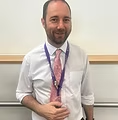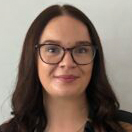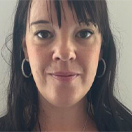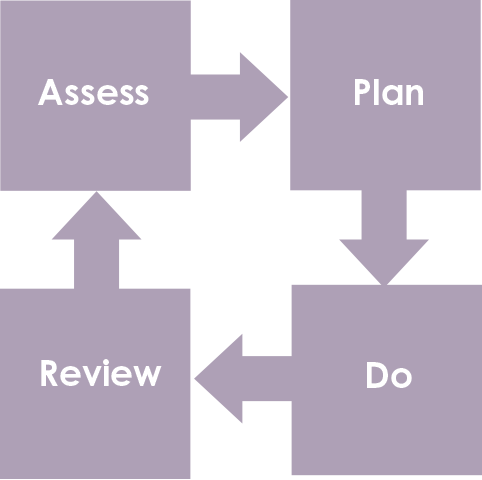Rugby Free Secondary School is committed to providing a positive and engaging learning experience for all students.
SEND
Rugby Free Secondary School (RFSS) offers a comprehensive and inclusive SEND provision that reflects both national best practice and the unique needs of its community. With 31% of students on the SEND register in the main school and a higher-than-average number of EHCPs, RFSS is proud to be Warwickshire SENDAR’s most popular school of choice for SEND families. The school’s approach is grounded in five evidence-based pillars, including trauma-informed teaching, holistic assessment, high-quality classroom instruction, targeted interventions, and effective deployment of teaching assistants. RFSS also runs specialist resource provisions for Communication & Interaction and SEMH needs, and offers a wide range of Wave 2 and 3 interventions tailored to individual student profiles. The SEND Teaching and Learning Principles guide every lesson, ensuring accessibility, clarity, and support for all learners.
Our SEND Staff are:



David Iles
SENCO
David.Iles@rugbyfreesecondary.co.uk
Mrs Freya Davies
Assistant SENDCO
Freya.davies@rugbyfreesecondary.co.uk
Sam Malt
Interventions Managers
samantha.malt@rugbyfreesecondary.co.uk
You can explore the full details of RFSS SEND in the linked documents:
What is Warwickshire’s SEND local offer?
Warwickshire’s SEND local offer brings together information about the local services and support available across education, health and social care for families with children and young people aged 0 to 25, who have special educational needs and/or disabilities
You can read more about the offer at: https://www.warwickshire.gov.uk/send
SEND FAQs
The SEND Code of Practice 2015 states:
A pupil has SEND if they have a learning difficulty or disability which calls for special educational provision to be made for them.
They have a learning difficulty or disability if they have:
-
A significantly greater difficulty in learning than the majority of others of the same age, or
-
A disability which prevents or hinders them from making use of facilities of a kind generally provided for others of the same age in mainstream schools.
Special educational provision is educational or training provision that is additional to, or different from, that made generally for other children or young people of the same age by mainstream schools.
Resources:
Warwickshire SEND Local Offer
https://www.warwickshire.gov.uk/send
Department for Education Advice Template
Special Educational Needs And Disabilites Guide For Parents And Carers
-
Access to the SEND team, to answer questions, provide support and help your child thrive at RFSS.
-
Monitoring of your child’s progress and feeding this back to you
-
Co-production with you and your child of a Student Centered Profile (SCP) that is shared with all teachers
-
A supportive, positive and collaborative relationship with you and your child
At Rugby Free Secondary School we follow the SEND Code of Practice that recommends: we assess students to determine their needs; we work together with parents and pupils to put together a plan of support, we implement (do) the plan in lessons and through interventions, and then we review the support to see whether it has had an impact and consider what the next steps are.
If your child is receiving additional support in school then they will be placed on the SEND Register. They will be monitored as part of the Plan, Do, Review Process and if they have made progress and are in-line with their peers then they may be taken off the SEND Register.

-
Cognition and Learning Needs
-
Communication and Interaction Needs
-
Social, Emotional and Mental Health Needs
-
Sensory and/ or Physical Needs
We should not ‘fit’ a pupil into a category, but rather provide support based on their particular area/s of need.
Please see information below regarding these four areas, taken from the Code of Practice 2015
As stated in the Code of Practice:
“These four broad areas give an overview of the range of needs that should be planned for. The purpose of identification is to work out what action the school needs to take, not to fit a pupil into a category. In practice, individual children or young people often have needs that cut across all these areas and their needs may change over time. For instance speech, language and communication needs can also be a feature of a number of other areas of SEN, and children and young people with an Autistic Spectrum Disorder (ASD) may have needs across all areas, including particular sensory requirements. The support provided to an individual should always be based on a full understanding of their particular strengths and needs and seek to address them all using well-evidenced interventions targeted at their areas of difficulty and where necessary specialist equipment or software.”
6.30 Support for learning difficulties may be required when children and young people learn at a slower pace than their peers, even with appropriate differentiation. Learning difficulties cover a wide range of needs, including moderate learning difficulties (MLD), severe learning difficulties (SLD), where children are likely to need support in all areas of the curriculum and associated difficulties with mobility and communication, through to profound and multiple learning difficulties (PMLD), where children are likely to have severe and complex learning difficulties as well as a physical disability or sensory impairment.
6.31 Specific learning difficulties (SpLD), affect one or more specific aspects of learning. This encompasses a range of conditions such as dyslexia, dyscalculia and dyspraxia.
6.31 Specific learning difficulties (SpLD), affect one or more specific aspects of learning. This encompasses a range of conditions such as dyslexia, dyscalculia and dyspraxia.
Resources:
British Dyslexia Association
http://www.bdadyslexia.org.uk/
The Dyslexia SpLD Trust
http://www.thedyslexia-spldtrust.org.uk/
Helen Arkell Dyslexia Charity
http://www.helenarkell.org.uk/
The National Literacy Trust
6.28 Children and young people with speech, language and communication needs (SLCN) have difficulty in communicating with others. This may be because they have difficulty saying what they want to, understanding what is being said to them or they do not understand or use social rules of communication. The profile for every child with SLCN is different and their needs may change over time. They may have difficulty with one, some or all of the different aspects of speech, language or social communication at different times of their lives.
6.29 Children and young people with ASD, including Asperger’s Syndrome and Autism, are likely to have particular difficulties with social interaction. They may also experience difficulties with language, communication and imagination, which can impact on how they relate to others.
Resources:
National Autistic Society
Autism Education Trust
www.autismeducationtrust.org.uk
Rugby Autism Network
Autism West Midlands
How to calm a child with Autism
https://www.nhs.uk/conditions/autism/autism-and-everyday-life/help-with-behaviour/
6.32 Children and young people may experience a wide range of social and emotional difficulties which manifest themselves in many ways. These may include becoming withdrawn or isolated, as well as displaying challenging, disruptive or disturbing behaviour. These behaviours may reflect underlying mental health difficulties such as anxiety or depression, self-harming, substance misuse, eating disorders or physical symptoms that are medically unexplained. Other children and young people may have disorders such as attention deficit disorder, attention deficit hyperactive disorder or attachment disorder.
Resources:
Young Minds
https://www.adhdfoundation.org.uk/
Healios
Anna Freud
Coventry and Warwickshire Mind
Challenging Behaviour Information and Advice
https://www.challengingbehaviour.org.uk/about-cbf/about-challenging-behaviour.html
CAHMS drop-in sessions
6.34 Some children and young people require special educational provision because they have a disability which prevents or hinders them from making use of the educational facilities generally provided. These difficulties can be age related and may fluctuate over time. Many children and young people with vision impairment (VI), hearing impairment (HI) or a multi-sensory impairment (MSI) will require specialist support and/or equipment to access their learning, or habilitation support. Children and young people with an MSI have a combination of vision and hearing difficulties.
Resources:
Tourettes Action
https://www.tourettes-action.org.uk/
Hypermobility Syndrome Association
http://hypermobility.org/about-us/
Downs Syndrome Information and Advice
https://www.downs-syndrome.org.uk/
Up of Downs
Sensory Processing
The SRP at Rugby Free Secondary School supports students in Years 7–11 who have Communication and Interaction needs, suchas Autism, speech and language difficulties, and sensory challenges.
It offers a calm and inclusive space within the school where students receive a personalised curriculum, including therapies, lifeskills, and academic learning. Students are encouraged to take part in mainstream lessons and school activities, with tailoredsupport to help them succeed.
Key features include:
- Personalised teaching and support
- Access to speech and language therapy, occupational therapy, and life skills
- Opportunities to gain GCSEs, Functional Skills, or other relevant qualifications
- Inclusive practices that build confidence, independence, and communication
- A maximum of 20 students to ensure individual attention
⚠️ The SRP is designed for students whose main need is Communication and Interaction. It is not suitable for those whoseprimary barrier to learning is Social, Emotional and Mental Health (SEMH) needs or Cognition and Learning (C&L).
Our SENDCo is David Isles, he is a strong advocate of an inclusive and respectful culture and leads a committed team.
Contact details:
Aiding learning from home – Techability
https://www.techability.org.uk/resources/aiding-learning-from-home/
https://www.warwickshire.gov.uk/send
What is Warwickshire’s SEND local offer?
Warwickshire’s SEND local offer brings together information about the local services and support available across education, health and social care for families with children and young people aged 0 to 25, who have special educational needs and/or disabilities.
Rise Referral
https://cwrise.com/how-to-refer-to-services/
Rise is Coventry and Warwickshire’s CAHMS service. It is a family of NHS-led services providing emotional wellbeing and mental health services for children and young people in Coventry and Warwickshire. Rise aims to build resilience and empower children and young people (as well as the adults in their lives) to know where to go for help and advice.
It’s made up of a number of different services, each led by mental health specialists. Alongside the GP and other health professionals, schools can complete a referral into this service.
CASS Referral
https://casspartnership.org.uk/make-a-referral/
The service is designed to enhance understanding of autism among individuals and families, supporting autistic and neurodiverse people to thrive in daily life, education, employment, and the community. It helps improve communication, sensory processing, self-esteem, and emotional wellbeing, while offering tailored support for young adults aged 18–25 during transitions. The service fosters an inclusive environment that respects all aspects of autism, provides peer support for families and carers, and connects individuals to relevant resources and community-based services.
Occupational Therapy Referral
https://www.swft.nhs.uk/our-services/occupational-therapy-children
This integrated health and social care team supports children and young people (ages 0–19) across Warwickshire with a range of physical and learning needs that affect their daily lives. Working in schools, nurseries, and homes, the team uses a family-centred approach to help with self-care, mealtimes, hygiene, education skills, environmental access, and organisation. Their evidence-based practice focuses on early intervention in familiar settings, empowering families, educators, and professionals to provide consistent support through collaborative goal-setting.
Occupations for children or young people include:
- Self-Care: Learning to wash, dress, eat & toilet independently
- Play and Leisure: It is through play that children learn and practice new skills, make friends, and find a sense of self.
- Education: Participation in education is a key occupation for children and young people.
EHCP Needs Assessment
https://www.warwickshire.gov.uk/requestehcassessment
An Education, Health and Care Plan (EHCP) is for children and young people with special educational needs and/or disabilities (SEND), who need more support than mainstream educational settings can normally provide through their special educational needs support, often referred to as universal or targeted provision.
If your child receives SEN support and has not made the progress expected in one or more of the four broad areas of need set out in the SEND Inclusion Guidance then they may benefit from an Educational, Health and Care Needs Assessment (EHCNA) to understand the nature of their needs and the type of support they require. These broad areas of need ensure consideration is given to all aspects of a child or young person’s learning, including their social and emotional development
